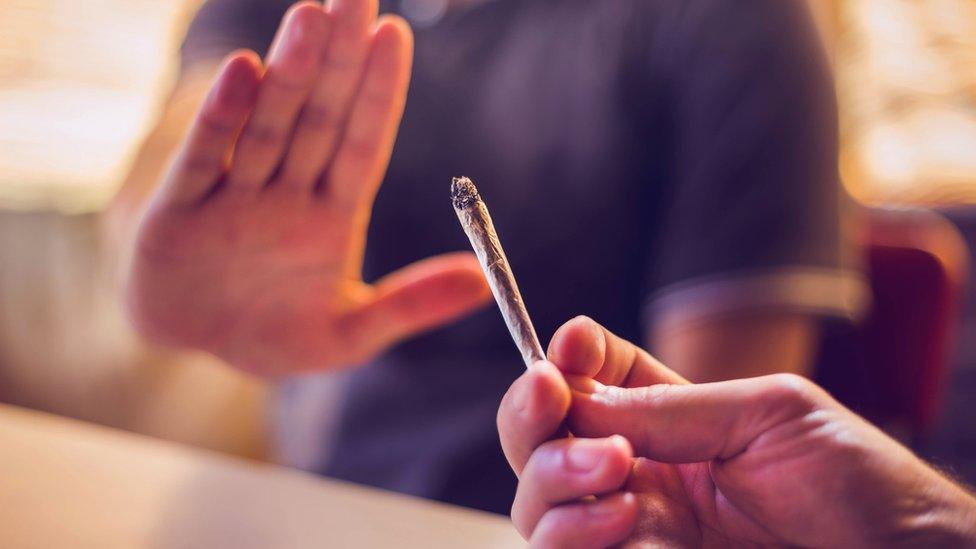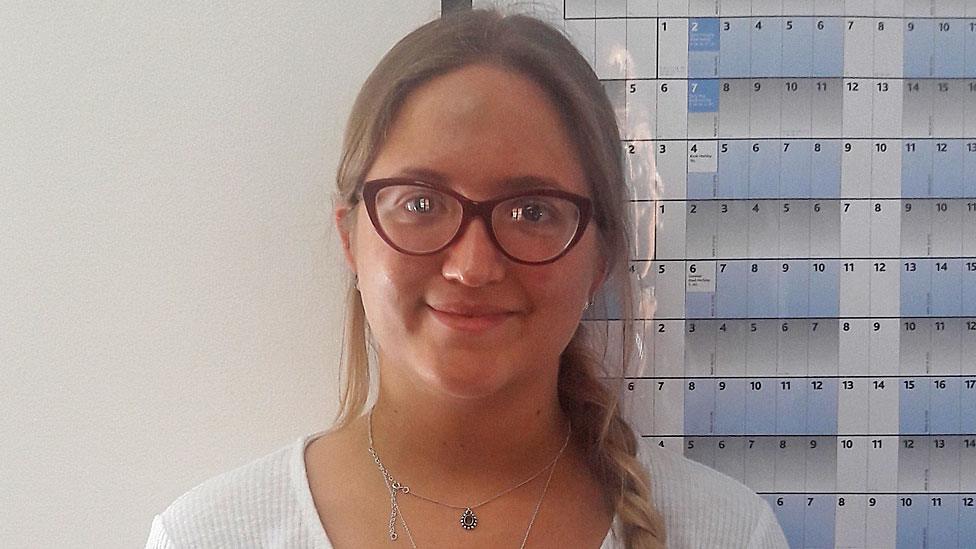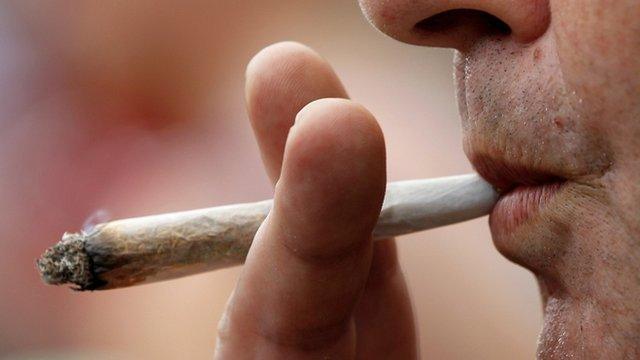Modern students 'prefer work to drugs'
- Published

Drug use is rejected by a clean-living generation of students
Students are more likely to want universities to take a tougher line against drugs on campus, rather than a more liberal response, say researchers.
The study - from the Higher Education Policy Institute (Hepi) and the University of Buckingham - found 71% of students had not taken illegal drugs.
But almost 40% thought their university had a "problem" with drug use.
Hepi's director, Nick Hillman, said students were "more hardworking and less hedonistic" than was realised.
The study, which surveyed more than a thousand undergraduate students, rejects the image of students being sympathetic to drug use, and suggests a more clean-living generation.
'Fewer drugs than previous generation'
It shows 62% wanting a "stronger line" from universities to stop the drugs trade on campus and 53% thinking that university authorities do not do enough to discourage drug use.
Drugs did not seem to be prevalent enough to be a major worry - with more students concerned about excessive alcohol consumption than illegal drug use.

Amy Watson says students are much less likely to be using drugs than the older generation think
The negative view of drugs saw them as causing mental health problems and encouraging criminality.
Last week an annual study of student attitudes from Hepi gave further evidence of a cultural shift towards a more hard-working approaching to student life.
It showed that students wanted to have more teaching hours, seeing a heavier workload as better value for money.
Paying tuition fees and the pressure to get a good degree seem to have influenced what students expect from their years at university.
Amy Watson, a first-year medicine student at the University of Southampton, thinks the previous generation was more likely to have taken drugs than current students.
She thinks that the expectations of older people and media stereotypes of students have created a false perception.
"My parents probably think more people take drugs than really do," says Amy.
"People work a lot harder than I expected."
Drugs 'stigma'
She says there is a "stigma surrounding drug use" and she would support the university taking a tougher line on targeting drug dealers.

Sam Carmichael says she would support stronger efforts to stop drug dealing
But despite the negativity towards illegal drugs, she says the misuse of alcohol is still common in universities.
She also says the greatest stigma is now attached to smoking tobacco.
Sam Carmichael, a 19-year-old student finishing her first year at the University of Buckingham, says the survey results reflect her own views.
Students in her experience are a long way from any drugs culture.
She would prefer universities to "crack down" on drugs, rather than adopt a more tolerant approach.
But she says that there is still a persistent media image of students as drug takers.
"It's less than people think. It's not true," she says.
She would prefer universities to make particular efforts to stop drug dealing.
"It makes us feel less safe," she says.
But she also thinks there should be better "monitoring" of students who drink too much alcohol and "get off their faces".
Counter-productive
The results from this survey do not agree with another recent piece of research from the National Union of Students, which suggested that about two in five students were drug users.
Cannabis, ecstasy, nitrous oxide and cocaine were the most widely used, according to a study which suggested that drugs were much more pervasive than claimed by the Hepi and University of Buckingham report.
The NUS says the approach of taking a tougher line on drug use could be counter-productive.
"Punitive approaches and taking a tougher stance on drugs can discourage people from seeking the help they need," said NUS officer, Jess Bradley.
The differences in findings suggest how different individual experiences and peer groups can be.
But Mr Hillman says the "survey provides an important corrective to some of the wilder ideas about today's students".
Sir Anthony Seldon, vice chancellor of the University of Buckingham, says: "With illegal drugs, we have been fiddling while Rome burns.
"Illegal drug-taking causes mental health problems, and is a symptom of them. Even students themselves think there needs to be a stronger lead on drug dealing."
- Published26 April 2018

- Published6 June 2018

- Published7 June 2018
